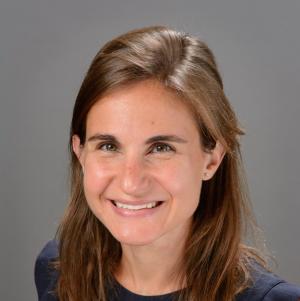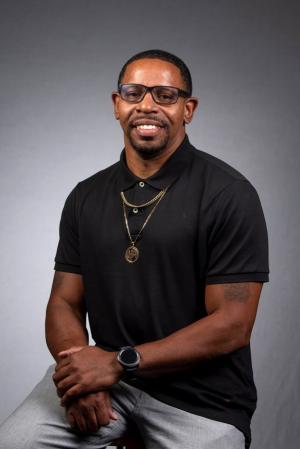The Power of Peers
Next Phase of $3.5M Project to Study Peers’ Impact on Individuals with Opioid Use Disorder
Knowing you need help and getting connected to it is only ever half the battle; doing the work, staying connected, and seeing the program through is the other.
The latter reality can be particularly challenging for individuals with addiction. However, new research by University of Maryland associate professor Jessica Magidson finds that individuals with opioid use disorder (OUD) are nearly 30% more likely to stick to their OUD treatment plan when they’re paired with a person with lived experience, aka a peer recovery specialist.
 Magidson’s latest study in the International Journal of Drug Policy is the result of a phase one, $800,000 NIH-funded project she started in 2019 to establish and evaluate a way to keep Baltimore City residents engaged in OUD treatment over the course of three months. And now that Magidson has found evidence to support the positive impact of her team’s approach in that pilot study of 37 people, the National Institute on Drug Abuse—through the National Institutes of Health’s Help to End Addiction Long-term (HEAL) Initiative—has provided the psychologist’s team with funding to conduct a second phase of their study; quadrupling their original sample size, doubling the time they’ll be following each participant, and bringing the project’s five-year funding total to approximately $3.5 million.
Magidson’s latest study in the International Journal of Drug Policy is the result of a phase one, $800,000 NIH-funded project she started in 2019 to establish and evaluate a way to keep Baltimore City residents engaged in OUD treatment over the course of three months. And now that Magidson has found evidence to support the positive impact of her team’s approach in that pilot study of 37 people, the National Institute on Drug Abuse—through the National Institutes of Health’s Help to End Addiction Long-term (HEAL) Initiative—has provided the psychologist’s team with funding to conduct a second phase of their study; quadrupling their original sample size, doubling the time they’ll be following each participant, and bringing the project’s five-year funding total to approximately $3.5 million.
“In the past five to 10 years, peer recovery specialist programs have been exploding. This is really exciting, but I think in some ways it’s expanded more quickly than the evidence,” explained Magidson. “The questions have been what exactly should peers be doing that is going to be most helpful? What are structured, evidence-based programs that peers can follow that also allow them to still integrate their own lived experience?”
Magidson’s model integrates peers’ shared lived experiences—what she calls the “magic ingredient”—into an evidence-based intervention called behavioral activation. Behavioral activation helps those receiving treatment identify things they value that are not connected to drugs or alcohol, and create day-to-day activities around those values that help them stay the course.
The peer uses a flipbook that includes images (on the participant’s side) and talking points (on the peers’ side).
.png)
“It's very helpful and I truly think it will be effective because this can be delivered and still preserve the peer role,” said Dwayne Dean, the peer recovery specialist who helped lead the intervention in the 2019 study. “The flipbook gives the participants a visual, for people to be able to see what we're talking about; and for me as the peer, it helps me to guide them because I get to see on my side of the flipbook everything they see, plus some somewhat scripted lines.”
 Dean met with each study participant once per week for 30-60 minutes, and saw many successes emerge from this work. This past summer, for example, one formerly homeless participant reached out to share that he had just celebrated one year of sobriety, that he is currently working, and that he has reunited with his wife and daughter.
Dean met with each study participant once per week for 30-60 minutes, and saw many successes emerge from this work. This past summer, for example, one formerly homeless participant reached out to share that he had just celebrated one year of sobriety, that he is currently working, and that he has reunited with his wife and daughter.
Recruitment for the next phase of this study engages co-investigators from University of Maryland, Baltimore: Dr. Aaron Greenblatt, a family medicine physician and opioid treatment provider at the School of Medicine, and Drs. Melanie Bennett and Annabelle (Mimi) Belcher of the School of Medicine’s Department of Psychiatry. Results are expected to come in March 2025.
“One of the things that's most exciting about these findings—and hopefully this larger trial—is that we have the empirical support to show that this peer intervention actually works,” said Magidson. “Our hope is that ultimately, if this continues to be helpful for people, that it could be incorporated into state certification and training programs for peers broadly.”
Published on Thu, Sep 8, 2022 - 12:03PM



